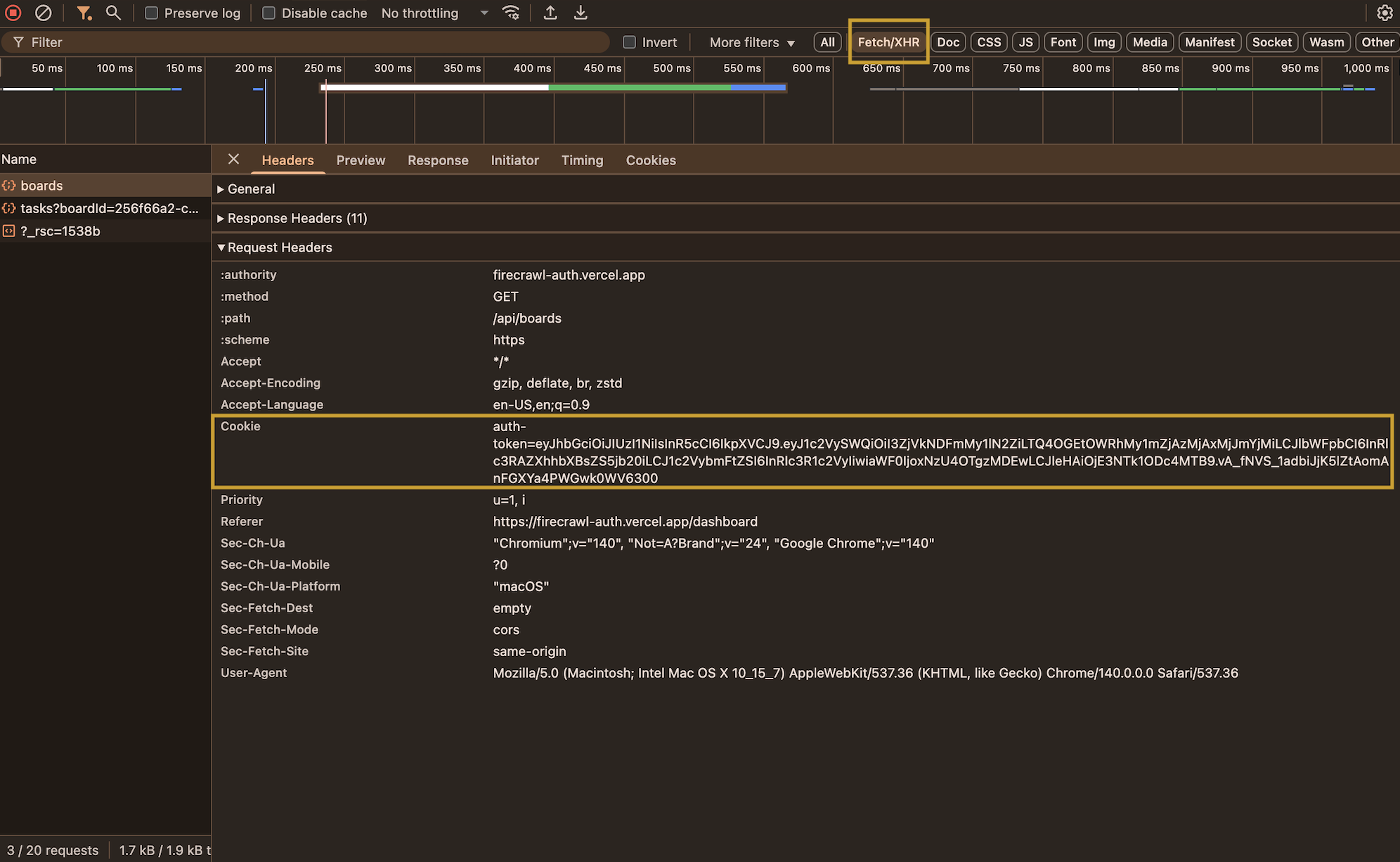Overview
The recommended approach for authenticated scraping is cookie-based authentication, where you:- Login manually to your application
- Extract the session cookie from DevTools
- Use the cookie with Firecrawl to access protected pages
Cookie Expiration Times:
- Internal tools: Often 7-30 days or longer
- Other tools: Often hours or minutes
Setup
1
Get API Key
Get your Firecrawl API key from firecrawl.dev/app
2
Install Dependencies
npm
Node.js < v20: If you’re using Node.js version 19 or earlier, you’ll also need to install And import it with
dotenv:import 'dotenv/config' at the top of your file.3
Configure Environment
Create a
.env file:.env
Method 1: Cookie-Based Authentication
Step 1: Extract Cookies from DevTools
Demo Application: You can practice with our demo app at https://firecrawl-auth.vercel.app
- Email:
[email protected] - Password:
password123
1
Login to Your Application
Navigate to https://firecrawl-auth.vercel.app and login with the credentials above
2
Open DevTools
Press
F12 or right-click → “Inspect”3
Navigate to Application Tab
Click the Application tab (Chrome) or Storage tab (Firefox)
4
Find and Copy Cookie
- Expand Cookies in the sidebar
- Click on your domain
- Find the
auth-tokencookie - Double-click the Value and copy it

Step 2: Use Cookies with Firecrawl
Best Practices
Cookie Security
- Store cookies in environment variables
- Never commit cookies to git
- Rotate cookies regularly
- Use
.gitignorefor.envfiles
Cookie Expiration
- Check expiration times in DevTools
- Set up alerts before expiration
- Re-extract cookies when they expire
- Consider using form-based auth for short-lived cookies
Rate Limiting
- Respect the application’s rate limits
- Add delays between requests
- Monitor for 429 (Too Many Requests) errors
- Use exponential backoff for retries
Error Handling
- Check for 401/403 errors (expired cookies)
- Validate response content
- Log authentication failures
- Have fallback authentication methods
Troubleshooting
Getting 401 Unauthorized Errors
Getting 401 Unauthorized Errors
Cookie Not Working
Cookie Not Working
Session Expires Too Quickly
Session Expires Too Quickly
For short-lived sessions:
- Use form-based authentication instead
- Automate the login process with actions
- Set up a cron job to refresh cookies
- Consider requesting longer session times from your internal tool’s admin
Cookie Lifespan for Internal Tools: Many internal tools set cookies with 7-30 day expiration times, making them ideal for recurring scraping tasks. Check your cookie’s
Expires field in DevTools to see how long it’s valid.
